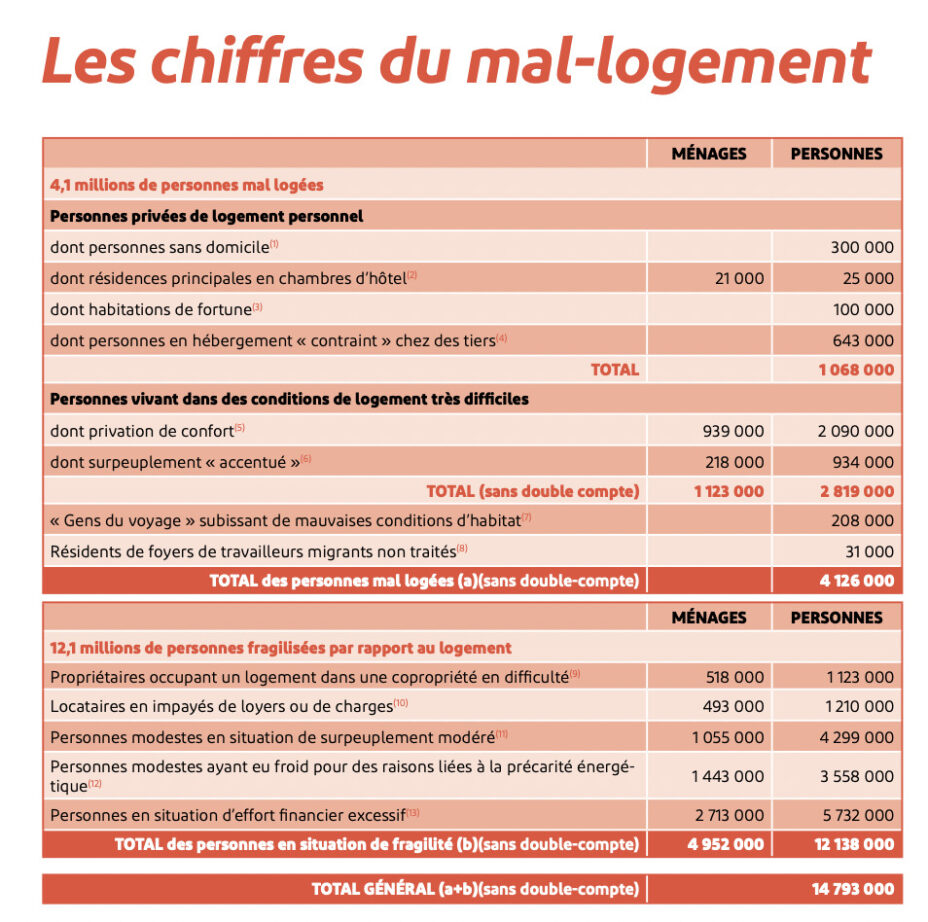Family budgets are melting, property prices are skyrocketing. In a context of inflation, families already weakened by the Covid crisis are finding it increasingly difficult to find accommodation. In front of them, government measures that overwhelm the poorest and further complicate their access to decent housing. Women and more particularly mothers are the first to be affected.
The real estate crisis in France
The price of real estate is detached from the financial reality of French families. Between October 2021 and October 2022, inflation increased by 6%. Despite everything, the cost of housing continues to increase over all or almost all of the territory. The 27th report on the state of housing poverty in France published by the Abbé Pierre foundation reveals that families with an income of less than 2,500 euros a month can no longer find housing in French cities. The foundation also looked into private rental in 11 small and medium-sized cities such as Annecy, Melun and Pornic. No one is accessible to incomes of less than 900 euros per month.

Rules that weaken the weakest
Despite the growing difficulties of the less privileged to access housing, the regulations are increasingly strict. From now on, squats can be evacuated without a court order, even if the buildings and premises are intended for professional use and/or empty. These illegal occupations are punishable by three years’ imprisonment and a fine of 45,000. Squatters aren’t the only ones affected by stricter regulations. In a non-payment situation, the deadlines for evicting tenants are reduced and the court can no longer grant them payment deadlines or detain them in their accommodation. If these “bad payers” refuse to leave the premises despite everything, they risk up to six months in prison and a fine of 7,500 euros.
Women and children on the front line
In this context of housing crisis, women are the first to be concerned as they are still the most precarious in France. Part-time jobs are 88% held by women and 51% by mothers. They are also much more likely to stop working completely to care for their children. These adjustments have a negative impact on their income and their access to assets. Among owner couples, 54% acquired the property in equal shares and 27% of men acquired it alone, compared with 15% of women.
When the couple provides them with some financial protection, their income decreases by an average of 20% after a separation. They often find themselves forced to leave a marital home that their former partner can continue to finance, unlike her. In spite of everything, they generally retain sole custody of the children as the mothers represent 83% of single parent families and 36% of these families live below the poverty line. 29% of these single mothers obtain social housing, but for 18% of them the small size of this housing is not suitable for the composition of the family.
Lack of solutions for vulnerable families
While precarious homes are particularly affected by this housing crisis, women in situations of absolute emergency do not always benefit from solutions to ensure their safety. In 80% of cases, victims of domestic violence do not have suitable housing conditions and 40% of the victims who have asked for help find themselves without alternatives that allow them to leave the house. When departure is possible, these victims are at the mercy of a former slacker partner as long as the lease is also in their name.
Today more than 2,000 children live on the streets. During last December’s cold spell, more than 4,000 families were refused emergency accommodation due to lack of space. Among them were 1,172 children, 300 of whom were under the age of three.
In France in 2023, the real estate market is going great. The same cannot be said of the many families who can no longer afford housing.
Source: Madmoizelle
Mary Crossley is an author at “The Fashion Vibes”. She is a seasoned journalist who is dedicated to delivering the latest news to her readers. With a keen sense of what’s important, Mary covers a wide range of topics, from politics to lifestyle and everything in between.




